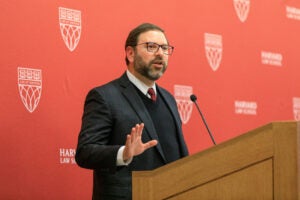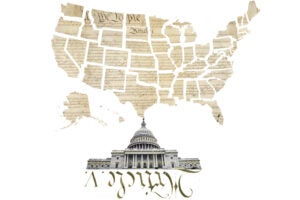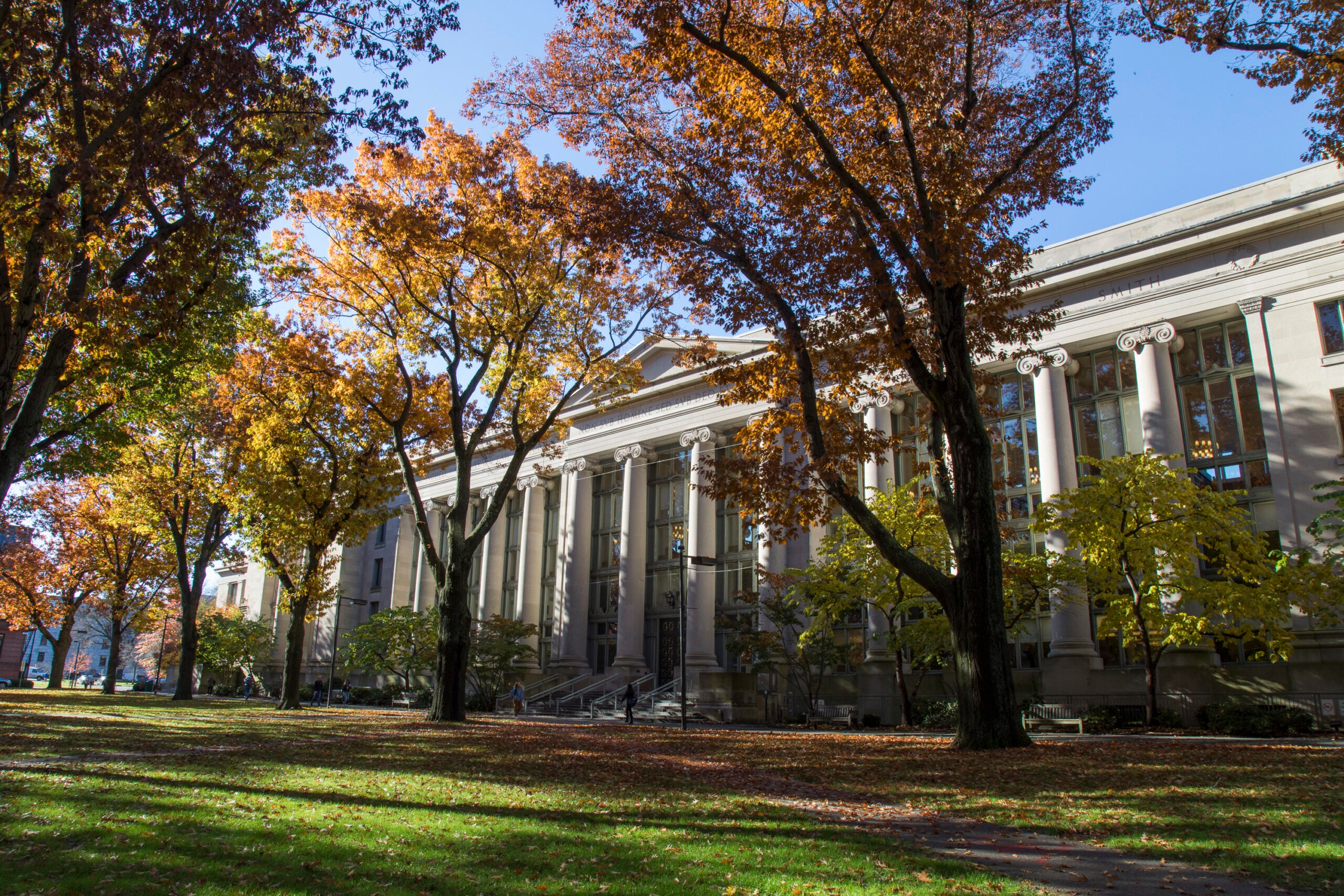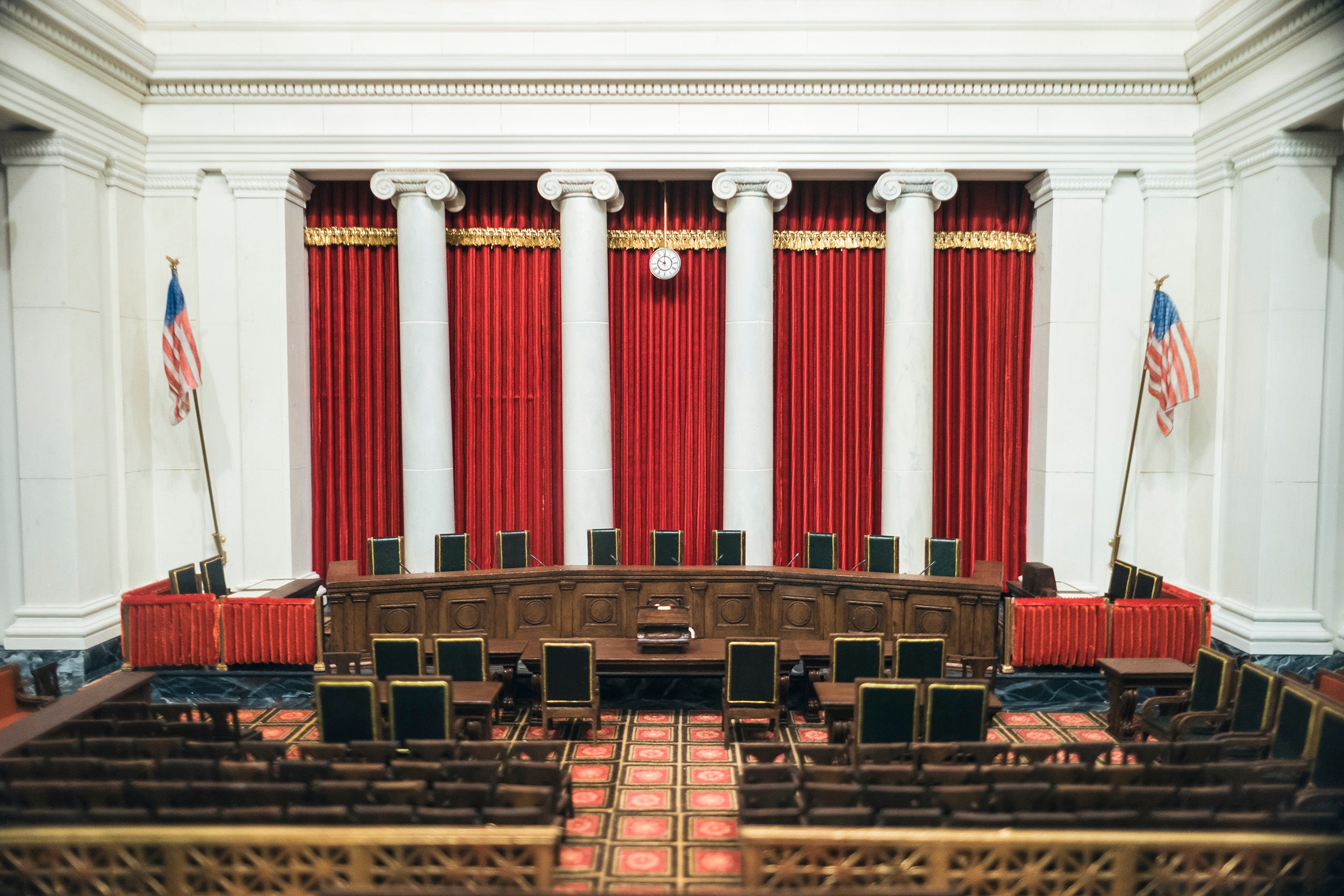People
Stephen Sachs
-
‘Harvard Thinking’: Our democracy problem
February 29, 2024
As the 2024 presidential election kicks into gear, U.S. democracy is again facing scrutiny. Probably for good reason. “There are a lot of indicators to…
-
On Nov. 1, Stephen Sachs celebrated his appointment as the inaugural Antonin Scalia Professor of Law with a lecture titled “Life After Erie.”
-
Supreme Court OKs state’s corporate consent-to-jurisdiction law, but door is ajar for future challenges
June 29, 2023
The U.S. Supreme Court on Tuesday upheld a Pennsylvania law that requires companies to consent to personal jurisdiction in state courts if they do business…
-
Summer 2023 Harvard Law faculty reading recommendations
June 13, 2023
Looking for a summer book recommendation? Check out what these members of the Harvard Law School faculty plan to read — and listen to — this summer.
-
Amendments should start with states
December 6, 2022
Stephen Sachs, the Antonin Scalia Professor of Law, outlines a way to smooth the Constitutional amendment process without softening it.
-
Change the Senate
November 30, 2022
Many analysts and citizens believe that the Constitution, more than 230 years old, is out of touch with contemporary America. We asked the scholars Danielle…
-
Summer 2022 beach reads
June 26, 2022
Harvard Law faculty and staff share their reading lists for beachside, poolside, or inside with the AC.
-
Engaging in good faith discussion
April 27, 2022
Federalist Society President Jacob Richards ’22, who describes himself as a classical liberal, appreciates engaging in good faith discussion of hard issues at HLS.
-
Editing the Constitution: Let states get the ball rolling on amendments
December 17, 2021
An op-ed by Stephen Sachs: Our Constitution was meant to be amended, but our process for fixing it is broken. Americans haven’t proposed and ratified a new amendment for half a century — the longest gap since the Civil War. And with so few amendments, the pressure for change falls on judges, encouraging courts to get creative (and political). New amendments need a two-thirds vote in both the House and the Senate, a high bar in a polarized Congress. If a proposal fails that test, we never find out if three-fourths of the states would have ratified it. Lowering these thresholds might produce more amendments. But it would also produce more controversial ones, because a lower threshold lets narrower majorities rewrite our fundamental laws. Instead, we could keep the thresholds but flip their order, letting the states go first. With this alternative, a new amendment proposal could advance one state legislature at a time. Once three-fourths of states had endorsed it, working out disagreements along the way, the proposal would go to Congress for ratification. The approval of two-thirds of each chamber might then be easier to come by, with both blue and red states already having signed on.
-
Faculty on the move
September 1, 2021
With the start of the academic year, a look at nine faculty who have joined Harvard Law School, been promoted, or taken on new roles in 2021.
-
As part of ongoing analysis, the 36-member Presidential Commission on the Supreme Court of the United States, 16 of whom are Harvard Law School faculty or alumni, recently solicited testimony from scholars across the political spectrum to weigh in on Court reform.









